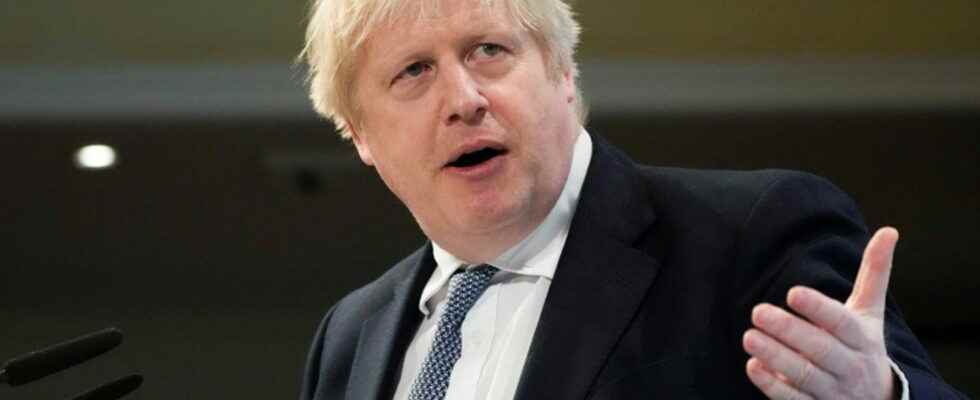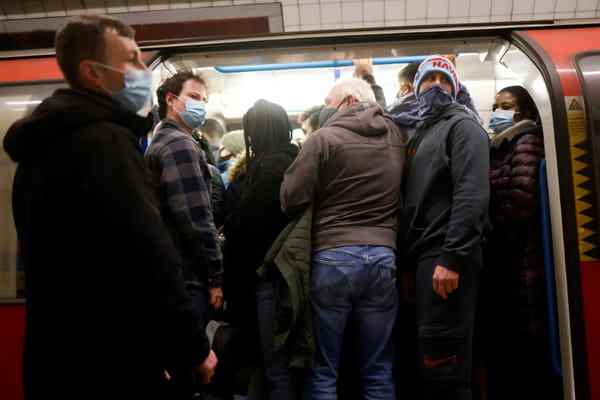Ignoring criticism, British Prime Minister Boris Johnson announced on Monday the end of compulsory isolation for positive coronavirus cases from Thursday in England, a key and controversial measure in his strategy for living with Covid-19 as with the ” flu”.
The United Kingdom, among the countries hardest hit by the pandemic with more than 160,000 deaths, was among the first in Europe to try to return to pre-pandemic life, relying on high vaccination coverage.
Stuck in a scandal over parties organized in Downing Street during confinement, which threatens his political survival, Boris Johnson has decided to accelerate, highlighting “sufficient levels of immunity” to move from legal constraints to an approach based on vaccines and treatments.
“The restrictions have a significant cost to our economy, our society, our mental well-being and our children’s opportunities, and we must not pay that price any longer,” the Conservative leader told Parliament, quoting the success of the vaccination campaign, the sharp drop in hospitalizations and the ability to “react quickly in the event of the emergence of a new variant”.
More than 71% of adults have received three doses of a Covid vaccine in England, including 93% of those over 70, he pointed out.
– Fourth dose –
It will however remain recommended, until April 1, to stay at home in the event of a positive test, the date on which free screening will be abolished, except for the elderly or vulnerable, because of its significant financial cost. Afterwards, it will be in the event of symptoms a question of “personal responsibility, just as we encourage those who may have the flu to be careful of others”, insisted Boris Johnson.
As soon as the peak of the Omicron wave passed in January, the leader had already lifted most of the restrictions in force in England, such as the indoor mask and the health pass for discos or mass events.
A sign of the tensions surrounding these last stages, the council of ministers scheduled for the morning to validate this plan had been postponed to the afternoon, by telephone, according to the media due to disagreements over the end of free screening.
The number of cases has dropped sharply in the United Kingdom but remains around 40,000 per day, including Queen Elizabeth II on Sunday, who according to Buckingham Palace, however, only suffers from “mild” symptoms.
At the same time as this relaxation, the government intends to continue its vaccination campaign, with the administration “in the spring” of a new dose of an anti-Covid vaccine to people over 75 and to the most vulnerable.
These measures were welcomed from the benches of the conservative majority, as well as by the employers’ organization CBI, which sees in them “an important step forward towards the return to normality”.
On the other hand, they have been criticized by the leader of the Labor opposition, for whom they will leave the British “vulnerable”, as well as by the Scottish nationalizations leader of the SNP in Westminster, Ian Blackford, who sees political expediency.
World Health Organization (WHO) envoy for Europe David Nabarro has expressed concern that the country is “choosing a line that goes against the public health consensus”, which would create “a domino effect in the world”.
For Christina Pagel, professor of operational research at UCL, these measures will first affect the most disadvantaged, who will find it more difficult to test and isolate themselves, public financial support also being removed, with the risk of increased infections around them.
In matters of health, the decisions of the government in London are limited to England. The other three nations – Scotland, Wales and Northern Ireland -, competent in health matters, have often adopted a more cautious approach.
All rights of reproduction and representation reserved. © (2022) Agence France-Presse

